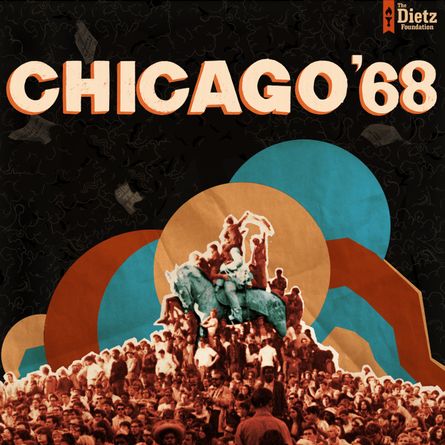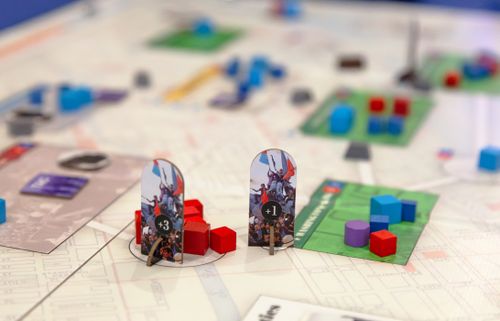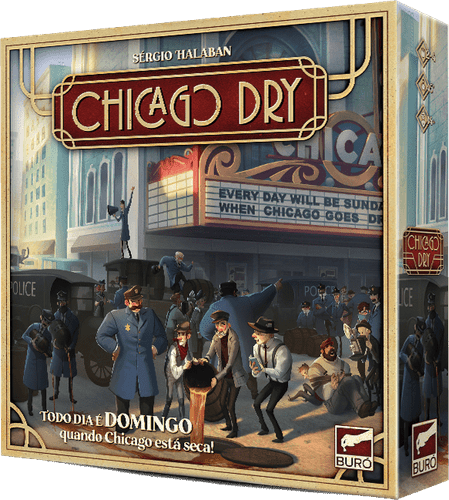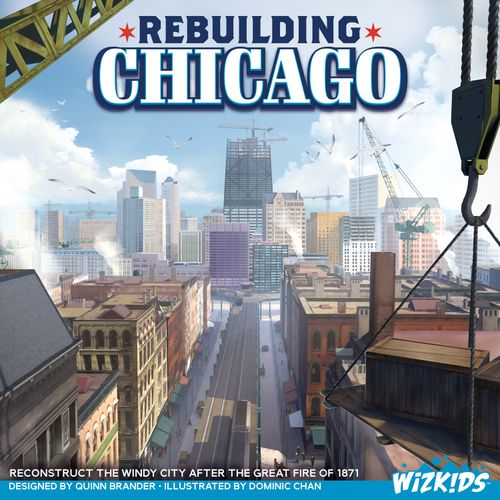Prototype components
In more detail, the game is played over five rounds, with two rounds representing a single day (daytime and nighttime). Each side takes turns playing cards from two decks of action cards. The first deck represents the leadership committees. For the Establishment, this is the Mayor’s office, and for the Demonstrators, this is the Yippies. These decks are primarily focused on building/activating card splays and manipulating the board state. The Mayor faction can access the policy tableau with the mandate action, which include activating undercover agents, authorizing tear gas, redeploying the National Guard, and more.
Then both sides alternate playing action cards from their rank-and-file decks: The National Mobilization Committee to End the War in Vietnam (MOBE) on one side, and the Chicago Police Department on the other. These actions are largely moving and confronting units on the map and claiming strategic positions. The Demonstrators may build and activate their street theater splay, which is a set of location specific one-time “mini-objectives” with unique, combinatorial powers.
Prototype components
At the end of every round, a delegate commits a vote to either side. Demonstrators grow in number, the mayor is allocated funds, and whoever controls a majority of critical city areas is awarded exposure points.
Chicago ’68 supports 1-4 players in solo, competitive, co-operative, and team play modes. Game duration is 45 minutes per player, with the typical two player duel lasting 60-90 mins.
In this game, 2-4 players secretly distribute alcohol across city districts as they face off against rivals and fight for territory, achieving higher scores as they occupy the Chicago central area. The player with the most influence points in both phases of the game wins and becomes the most infamous gangster in town!
Each round, your population grows, then you can either build a new building, expand into a new suburb, activate an event, or build a landmark, after which you earn profit based on your neighborhood’s commerce. You’ll buy building types from a shared market — looking to find shapes that fit your grid and types that fit your strategy — and construct landmarks on the right tile combinations. Suburb tiles connect to your grid however you like, creating uniquely shaped neighborhoods. Triggering citywide events can change the tide of the game, offering points, money, and expansions for the players ready for it. You can even enact laws to give yourself the advantage!
You earn points for building types, upgrades, landmarks, events, and remaining cash, and at the end of the game, whoever’s neighborhood has earned the most points wins.
Rebuilding Chicago also comes with a solo player deck so that you can compete to build the best version of Chicago even with just one player. Enjoy gameplay against a deck designed to simulate the actions of a second player to discover strategies and configurations you can use to improve Chicago.
Disclaimer: all images are owned and copyright by their respective owners and website (boardgamegeek.com) and “https://madcity.games/blog” is for news, information, product news and reviews.




